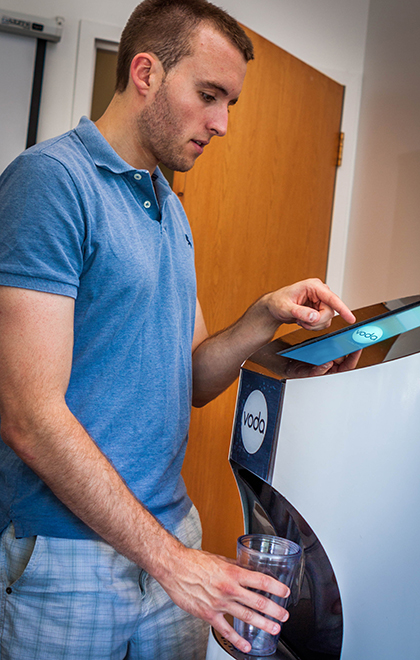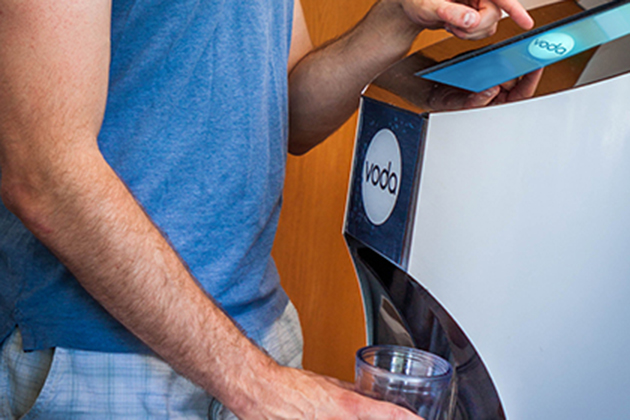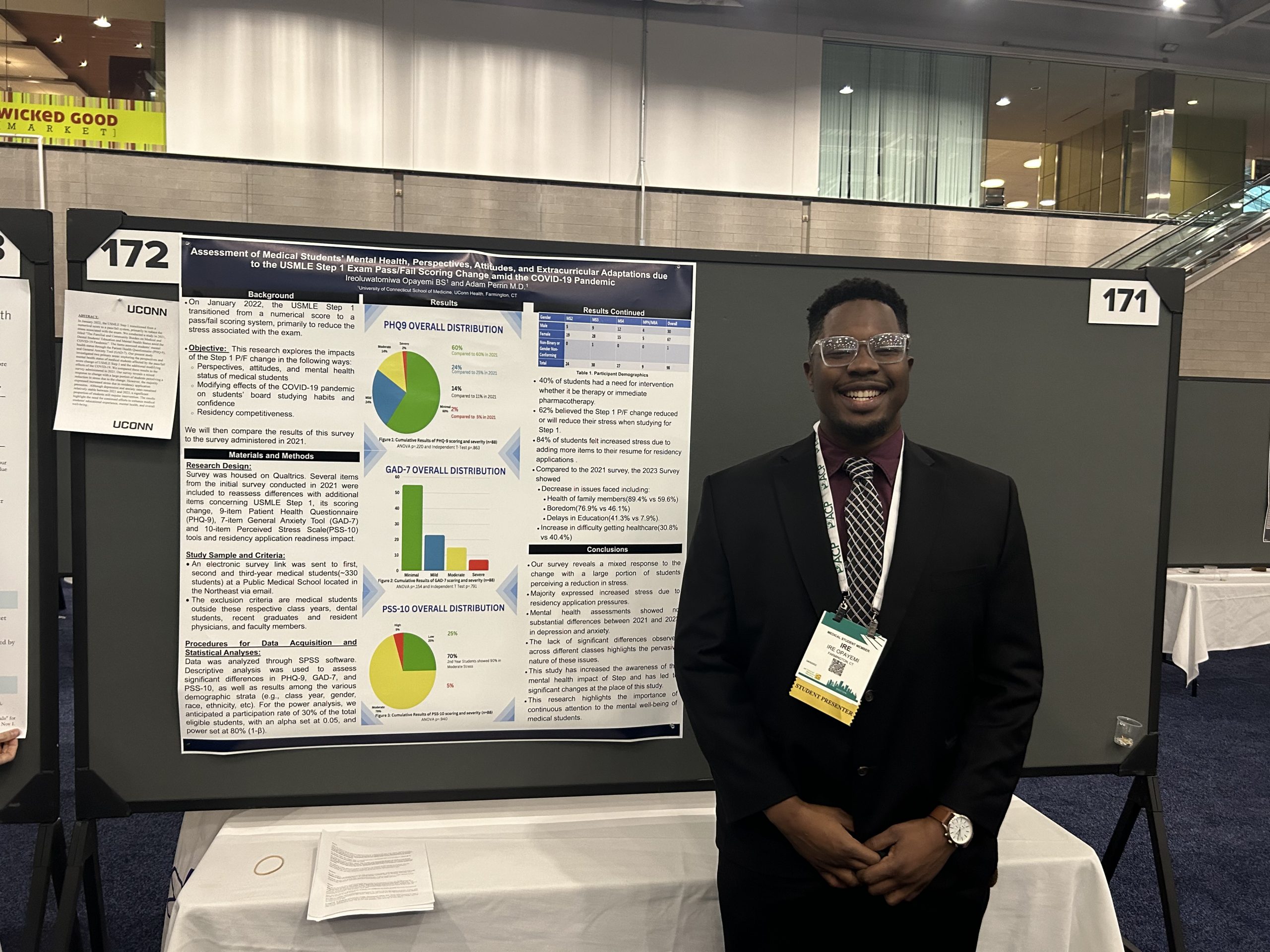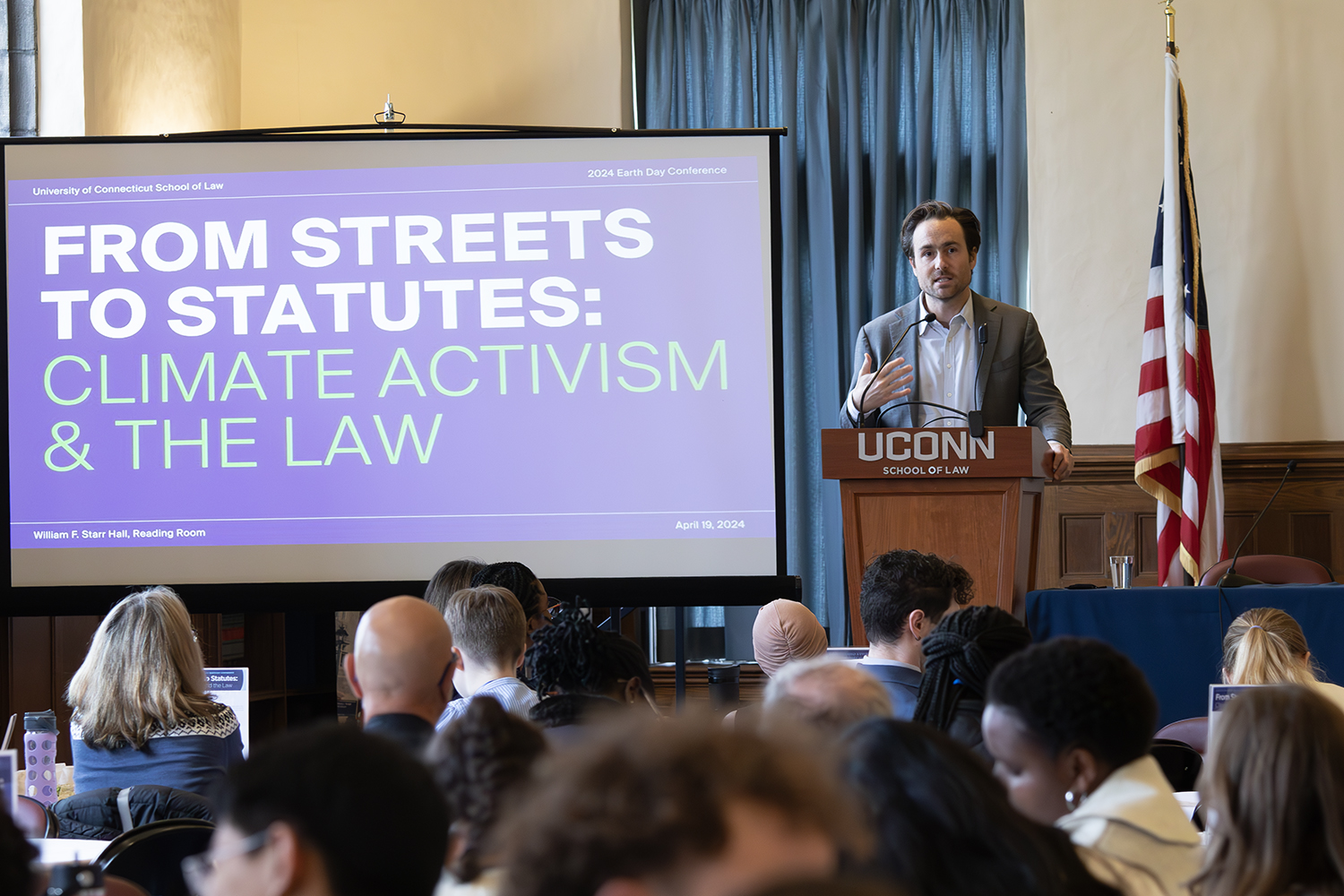
Move over water cooler. Make way for the SmartWell.
Voda, a start-up company with its roots at UConn, has developed a new beverage distribution service that customizes drinks to its users’ tastes.
The SmartWell gives thirsty users purified tap water with various options: carbonation, flavors, and minerals can be added at will.The company was founded on the concept of delivering the quality of water found in bottled brands, but at a cheaper price and without the plastic bottle waste.
Yanbing Guo, chief technology officer for the company and a postdoctoral researcher at UConn, founded the company with Matthew Cremins ’13 (ENG), ’14 MS, who earned his master’s degree in mechanical engineering in August. They’ve been working on the business, formerly known as Secor Water, for about a year and a half.
The idea started in UConn’s popular Experiential Technology class, which aims to transform lab-developed technologies into commercial products and processes. This year, the company’s founders have expanded the team with three new members – UConn grads Tom Walczak ’13 (ENG) and David Ritter ’13 (CLAS), and UConn undergraduate Dillon Jones, an engineering major who is currently taking the Experiential Technology course.
“The idea was to focus on a global problem, so we chose water,” Cremins says. “We decided to focus on the fact that every day as Americans, we consume enough bottled water to circle the Earth with bottles lined end to end.”
Professor of practice Hadi Bozorgmanesh, who teaches the entrepreneur program, says the company’s goals strike the right balance between commercial interests and global stewardship.
“They are among the group of young entrepreneurs who are dedicated to doing well by doing good,” he says. “Their choice of tackling a major environmental problem in an entrepreneurial manner is the model of what we’re trying to do.”
They’ve received about $20,000 in seed money from the Third Bridge program, funded by the quasi-state organization Connecticut Innovations. That organization, formed by the state legislature to help promising technology companies get off the ground, also awarded the company $12,000 in prize money at its CTNext Entrepreneur Innovation Awards, a competition held earlier this year. They’ve also raised about $10,000 in funding from private investors, and expect to raise another larger round of seed money this year.
“Within a year, we will have the SmartWell product fully designed and ready to pre-order,” Cremins says. “And in two years, we will have installed over 500 SmartWell units throughout the Connecticut and the greater Northeast Region.”
This past summer, the concept entered the beta testing phase. One of the machines, known as a SmartWell, was installed in the office of a Glastonbury accounting firm, Fiondella, Milone & LaSaracina, as part of a weeklong beta test. It was the first testing the company had done in an office setting.
“They used our machine to replace an old water cooler,” says Guo. Between 20 and 30 employees used the machine and gave their feedback about flavor, appearance, convenience, and other factors. “We’ll use that information to improve our design.”
Last month, the beta testing continued at the office of Connecticut Innovations. Deb Santy, director of strategic innovations for Connecticut Innovations, says the Voda machine – known as a SmartWell – was a hit among her co-workers for the week that it took up residence in their office.
“The concept is very appealing to many people,” Santy says. “The idea of accessing water from something other than plastic bottle is appealing, as is the potential to have the things that they need in the water.” Plus, she adds, the public is becoming more health conscious. Her own drink of choice was a strawberry-flavored water, fortified with a vitamin blend.
The SmartWell can also collect data on healthy drink trends and overall usage. Santy says this information has the potential to be invaluable from both a business and a public health perspective. Although the initial response of the office was positive overall, she says there are still improvements to make the machine easier to operate.
“They may have to work on that, but that’s what a beta test is for,” she says, noting that the company’s founders have been open to suggestions. “That’s why we like them. They’re very open and flexible. That kind of management is critical to the success of a business.”
Voda is continuing to test the machine in workplaces across the state, and is looking for additional beta testers.
And because of the company’s UConn origins, Cremins says he hopes soon to see SmartWell machines on campus as well. “Voda would love to bring SmartWells to UConn – back to where the original idea began,” he says.
For more information about Voda, contact Cremins at matthew.cremins@gmail.com or call him at 860-918-9185.



